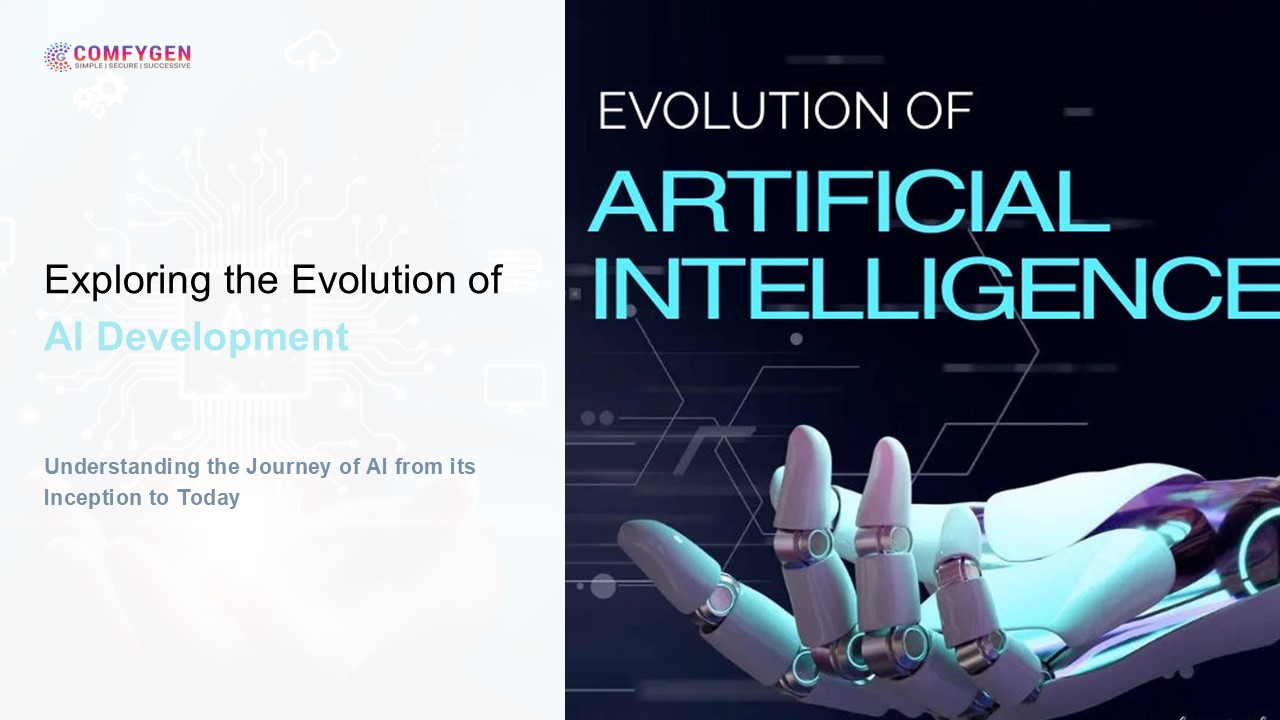Exploring the Evolution of AI Development - PowerPoint PPT Presentation
Title:
Exploring the Evolution of AI Development
Description:
AI development has progressed from early concepts like the Turing Test to today’s deep learning and big data technologies. Key milestones, including IBM Watson and DeepMind, highlight AI’s transformative impact across industries. – PowerPoint PPT presentation
Number of Views:0
Date added: 14 February 2025
Slides: 7
Provided by:
Payal_
Category:
Medicine, Science & Technology
Tags:
Title: Exploring the Evolution of AI Development
1
Exploring the Evolution of AI Development
Understanding the Journey of AI from its
Inception to Today
2
What is AI?
Artificial Intelligence (AI) is a field focused
on creating systems that can reason, learn, and
perform tasks like humans, handling complex data
and tasks that typically require human
intelligence, like problem-solving. AI's
history began with Turing's Test and symbolic AI
in the 1950s-70s, followed by slow progress and
funding cuts during the AI Winter
(1970s-1990s). Key Components Machine Learning
(ML) Deep Learning Natural Language Processing
(NLP)
3
- Key Milestones in AI Development
- 1950s-1970s AI emerged with the Turing Test and
early algorithms. - 1980s-1990s Expert systems and neural networks
advanced AI capabilities. - 2000s-Present Big data and deep learning
revolutionized AI applications. - Notable Events
- IBM Watson won Jeopardy! (2011).
- DeepMind beat AlphaGo (2016).
4
- Technologies Behind AI Development
- Machine Learning Algorithms that allow systems
to learn from data. - Deep Learning Neural networks simulating human
brain activity. - Natural Language Processing (NLP) Understanding
and generating human language. - Key Tools and Frameworks
- TensorFlow, PyTorch, Keras, etc.
5
- Impact of AI on Various Industries
- Healthcare Diagnostics, Personalized Medicine,
Robotics. - Finance Fraud Detection, Automated Trading, Risk
Management. - Retail Personalization, Inventory Management,
Chatbots. - Transportation Self-Driving Cars, AI in
Logistics. - Emerging Applications AI in Education,
Agriculture, Entertainment.
6
Conclusion
AI has evolved from basic algorithms to complex
deep learning systems, revolutionizing
industries. As technology advances, AI continues
to shape the future, offering endless
possibilities while addressing key challenges for
society.

